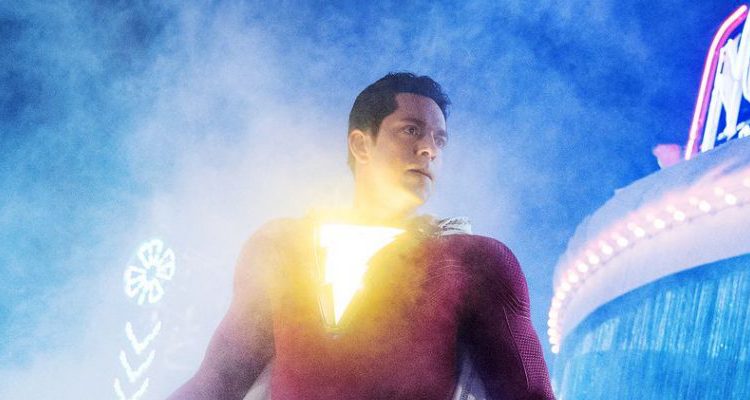
Created by Charlie Brooker, Black Mirror remains one of the most addictive television anthologies produced today. Best described by Brooker as “each episode has a different cast, a different setting, and even a different reality. But they’re all about the way we live now, and the way we might be living in 10 minutes’ time if we’re clumsy.” The tone was set perfectly with the first two seasons over the BBC, with the stories receiving a boost from good to mind-blowing beginning with season three (courtesy of Netflix). “Playlets” and “Men Against Fire” were crowd-pleasures, to be sure, with the Hugo-nominated “San Junipero” — a story about colorblind romance — providing the best science-fiction televised in years. With season four now available, six additional episodes were thrown into the mix… and fans seem to find at least one or two winners.
“U.S.S. Callister” was the first episode of the season, dramatizing an evil gaming genius who is able to replicate thought process through DNA, with his co-workers unknowingly paying the price through manipulation on a level that has never been challenged. His scheme runs afoul by a new co-worker who decides imprisonment in virtual reality is not an option and rebels against the machine. This episode will not only please fans of the original Star Trek, but production values are so good that for a short while you really believe you are watching a “lost” 1960s television episode.

“Arkangel,” originally intended to serve as the first episode of the new season, was directed by Jodie Foster. When a single mother panics for a short time, fearing the loss of her young daughter, she employs a scientific program known as “Arkangel,” granting her access to her child’s whereabouts and visual cortex. As the yard pass, we witness rebellion against a young woman who was isolated from the terrors of the real world… and how far a mother would go to protect her teenage daughter. The ending is not surprising, but truly poignant.
“Crocodile,” tells the story of an insurance claims investigator who uncovers a murder and quickly finds herself documenting evidence of the crime. The killer goes overboard, covering her tracks with additional murders, only to discover a flaw in her plan that you will not see coming.
“Hang the DJ” may be — arguably — the best episode of the season. At least, this was the cleverest episode of the season. With the entire world’s population allowing a computer algorithm to determine “true matches” for boy-meets-girl, trial and error is necessary through simulation. It only took one date for a particular couple to determine they were meant for each other — and choose to rebel against the system no matter what the price.

“Metalhead” was shot in black and white and tells of a survivor story in a post-apocalyptic world where man faces off against robot dogs. Very little information — if any — is provided to the viewer as to how the robot dogs came to be and why the human race is trying to survive… proving that the “why” is not necessary for a story that wraps around a single promise of survival. Shooting in black and white is expensive, which may explain why this episode is the shortest length (less than 50 minutes). The story packs a punch at the end and while some might criticize the running time, it works to the story’s advantage.

The final episode of the season was “Black Museum,” an extra-length episode featuring three short stories, told from artifacts on display at a murder museum in the middle of the desert. The collector is eccentric and the stories are gruesome in nature (the first story written by Penn Jillette, is worthy of a Tales from the Crypt entry) but wrap up conclusively at the end with a satisfactory ending.
Performances are top-notch in every episode, along with special effects, direction, and dialogue. While fans may complain that the stories in season four are overall not of the same caliber as season three, I digress. Black Mirror is equally entertaining on all accounts and fans will be split on many of the episodes — what I found enjoyable others may find boring. One thing can be certain: Netflix should continue to push the limits with this one.



